Organoids are key 3-dimensional tissue structures and can be developed in many different types, they are used widely in drug discovery and various medical treatments due to their flexibility and how they can reflect cellular characteristics. When culturing organoids two growth factors are key to development, Wnt3a and FGF.
What is FGF-Max?
The family of fibroblast growth factors (FGFs) are composed of the growth factors involved in a variety of vital phenomena, including development, differentiation, proliferation and morphogenesis. FGF-1~FGF-10 transmits signals into cells by binding to the FGF receptor (FGFR). Previous publications have suggested the FGF/FGFR signalling pathway is deeply involved in many processes from embryonic development to adult homeostasis.
Activation of the FGF/FGFR signalling pathway is also known to be important in organoid culturing. However, the proper selection of different FGFR ligands for each organ type is necessary to avoid complications in experimental set-up and execution. Using the universal FGFR ligand ”FGF-1”, which shows high affinity to all types of FGFR, is expected to be a simple and convenient method for organoid culture. However, FGF-1 is known to be thermally unstable, and at 37 °C (the temperature at which cell culture is normally conducted) the bio-activity is lost within 6 hours, including in the presence of heparin. These factors result in FGF1, which is commercially available, being unsuitable for use in organoid culture studies.
To solve this issue, MBL enhanced the thermal stability of the universal FGFR ligand “FGF-1” by chimerising FGF-1 and FGF-2, developing FGF-Max – a recombinant chimeric protein with features of both FGF-1 and FGF-2.

FGF-Max is different from the wild-type proteins and using advanced techniques from Japan, has been designed to improve organoid culture. MBL has the exclusive commercial use license of FGF-Max and is developing many new products to further simplify organoid culturing.
Assay and organoid culture examples using FGF Max
Quantitative luciferase reporter assay
A luciferase reporter assay (SRE Reporter, Luciferase, HEK293 Cell Line: BPS Bioscience) was performed to assess the activity and stability of FGF-Max.
Comparing with FGF-2
FGF-Max and FGF-2 were added to the cells at different concentrations and cultured for 6 hours. The results show that FGF-Max has the same level of bio-activity as FGF-2.
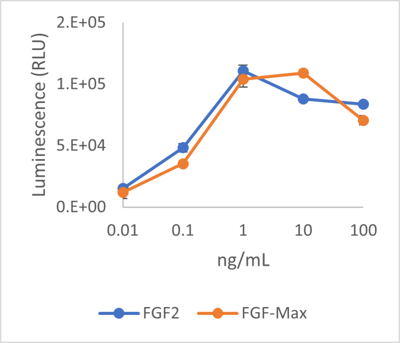
Thermal stability evaluation
After pre-incubation of FGF-Max and FGF-2 at 37°C for 24 hours, 48 hours, and 72 hours, they were added to the cells for bio-activity assessment. The results suggested that FGF-Max retained higher bio-activity after pre-incubation compared to FGF-2, which also proves that FGF-Max has higher thermostability than FGF-2.

Human small intestinal organoid cultures
Human small intestinal organoids were cultured in the presence of FGF-Max and FGF-2. The proliferation of organoids was higher in the presence of FGF-Max than in FGF-2.
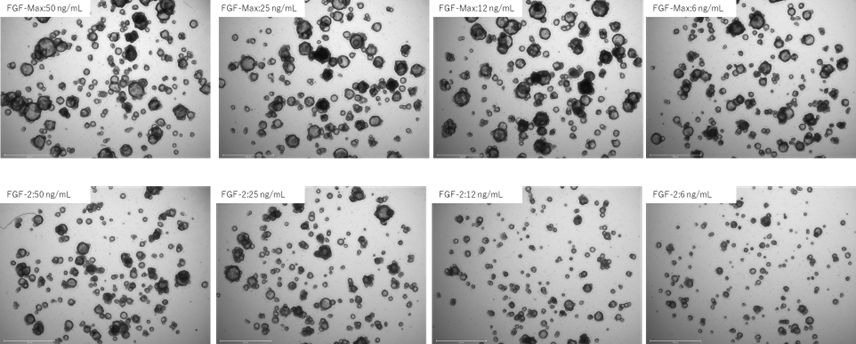
Differentiation of human small intestinal organoids
Paneth, endocrine and goblet cell markers of human small intestinal organoids cultured in the presence of FGF-Max (4 ng/mL) were stained and the presence of these cells in organoids was confirmed.
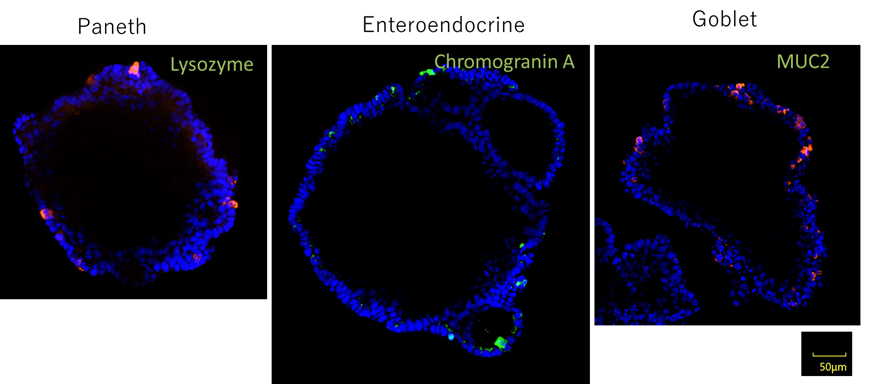
Establishment of mouse gastric organoids
Murine gastric organoids were cultured in the presence of FGF-Max and FGF-10. Similar to human small intestinal organoids, the proliferation of organoids was shown to be higher in the presence of FGF-Max.
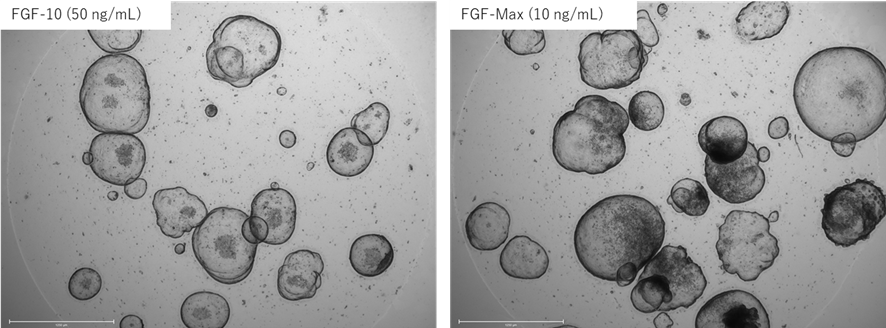
ATP assay
ATP-assay results suggested that the cell viability in organoids is higher with the presence of FGF-Max.
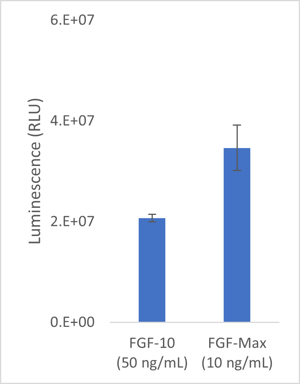
Establishment of mouse pancreatic organoids
Murine pancreatic organoids were cultured in the presence of FGF-Max and FGF-10. Similar to the above results, it was suggested that the proliferation of organoids was higher in the presence of FGF-Max.
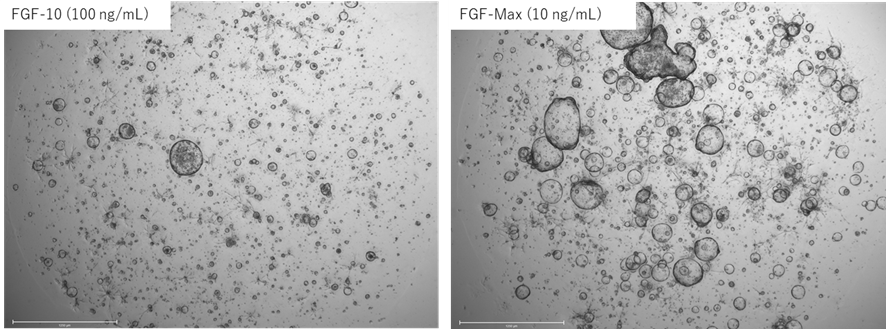
Information originally posted on: https://resources.mblintl.com/learning-center/research-area/organoid_culture/fgf-max-recombinant-human-fgf-1-fgf-2-chimera/
Caltag Medsystems is the distributor of MBL products in the UK and Ireland. If you have any questions about these products, please contact us.
